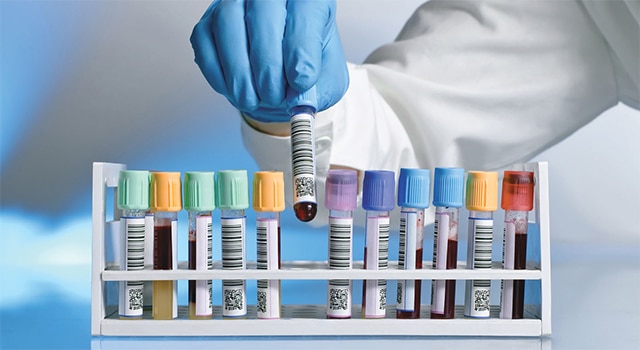
Clinical experts have said that early diagnosis of invasive viral infections could save lives and reduce the rate of mortality in Nigeria.
The experts, who met for a three-day capacity training in fungal infections at the College of Medicine, University of Lagos, on Monday, said the lack of necessary skills and knowledge of these infections was causing avoidable deaths in the country as doctors could not identify fungal infections at their early stages.
The programme, organised by the Pan African Mycology Working Group, had the theme ‘Intensive Training on Diagnosis and Management of Fungal Infections for Clinicians and Scientists’.
It was held from January 8 to 10, 2024 at the Invasive Fungal Hub, Telemedicine Centre and Training Hub of the college.
According to the organisers, over 30 participants from seven African countries gathered to learn from experts on how to identify invasive fungal infections and treat the diseases before they become fatal.
The Chairperson of the Pan African Mycology Working Group and President of the Medical Mycology Society of Nigeria, Dr Rita Oladele, said deaths from invasive fungal infections had been on the rise as most patients die because diagnosis was delayed until post-mortem.
She noted that 11.8 per cent of Nigerians were at risk of invasive fungal infections.
She said, “Invasive fungal infections are life-threatening infections. The mortality and morbidity rates are very high. Unfortunately, one of the drivers of mortality in this group of patients is that the diagnosis is not made early. So, most times, patients die because the diagnosis is delayed and only made at post-mortem.
“We thought we could save lives. In 2016, we did a survey on the knowledge of doctors-in-training and senior doctors in Nigeria in this area. Out of 1,045 participants, only two had a good knowledge of the group of diseases, making 0.02 per cent. Essentially, a patient with an invasive fungal infection in Nigeria is very likely to die because the doctors do not know the test to conduct and the treatment to give.
“From the data generated, we knew that the thing to do was to bridge the knowledge and drive awareness about invasive fungal infection. We also did an estimate based on regional data and some local studies on the body of diseases, and we discovered that 11.8 per cent of Nigerians are at risk of invasive fungal infection.”
Oladele told The PUNCH that the purpose of the workshop was to train one doctor and one lab personnel from the seven African countries to learn about the diseases and how to identify them early.
“The doctor will learn about the diseases, how they can be managed, the group of patients at risk, and the right tests to conduct. The lab personnel will learn how to make the diagnosis and culture the organisms. We want Africa to be on the common page in regard to this development. We do not want only Nigeria to be the success story. It is an African problem and we have to build more capacity to save more lives,” she added.
One of the experts who conducted the training and a senior laboratory adviser, Mycotic Diseases Branch, Center for Diseases Control and Prevention, United States, Dr. Shawn Lockhart, said The training would equip participants with what they need to know about fungi so that they can go back to their countries to advocate for more training and practice in the treatment of invasive fungal infections.
He said, “Mycology is kind of forgotten in most hospitals. They focus on viruses and bacteria but they ignore fungi. Sadly, fungus is a devastating disease and deadly, and if you do not identify it quickly, it often ends very badly for the patients. The focus is to train participants from 7 African countries on the diagnosis and identification of fungi. And the hope is that each participant being trained here will go back to their country and advocate for the training and study of fungi. We hope this number keeps growing in different countries across the continent.”
A participant, Claudine Muka from the Infectious Diseases Institute, Makerere University, Uganda, told The PUNCH that she hoped that her country would provide the necessary human and material resources to continue the study of invasive fungal infections to save lives.
“I am here to learn more about the diagnosis of fungal infections so that I can boost my capacity in this new area. I want to go back to my country to save lives in my country,” she added
Another participant, David Koffi, from Pasteur Institute, Côte d’Ivoire, said, “We understand the challenges we are facing in Africa when it comes to diseases and infections. With what I learn here, I will use the knowledge and skill to set up back in my country and help save lives.”
The Chairman of the Local Organising Committee of the training, Dr. Akinlawon Damilola, advised the Federal Government to prioritise the study of invasive fungal infections as the new group of diseases can be deadly.
“The speculations for fungal diseases and fungal infections are rising. We do not have the facility to check these diseases and they are the cause of thousands of deaths. So, with this emerging knowledge, we need more laboratories, resources, and training to increase the knowledge and awareness of these diseases. This will help us to be able to catch these diseases when they appear,” he added.
A research engineer from the Pasteur Institute, France, Dr. Aude Sturny-Leclere, was also among the experts who took the participants on the three-day training.





